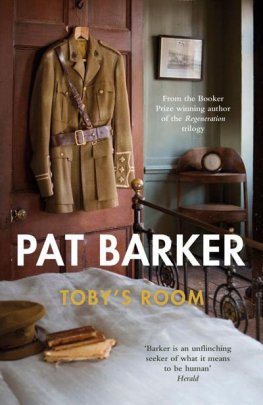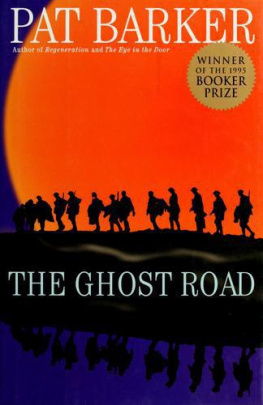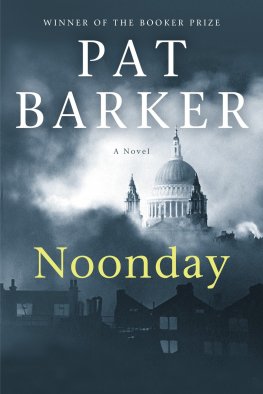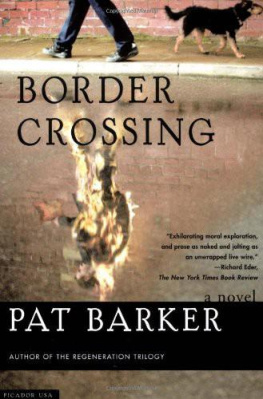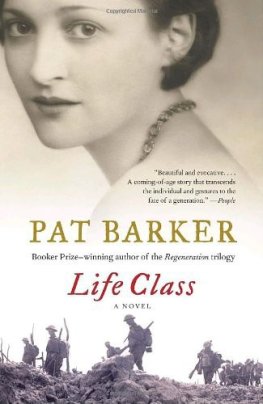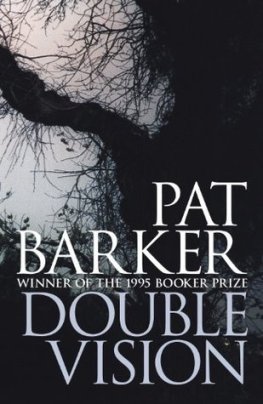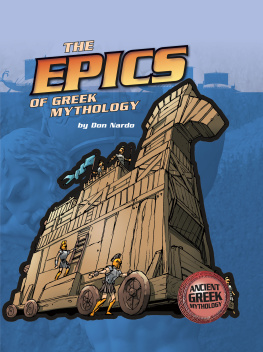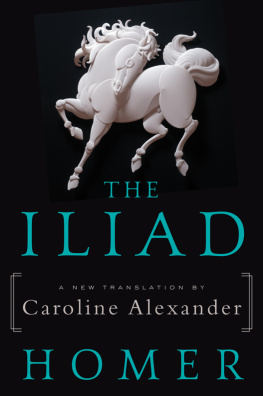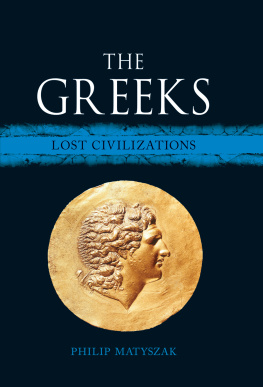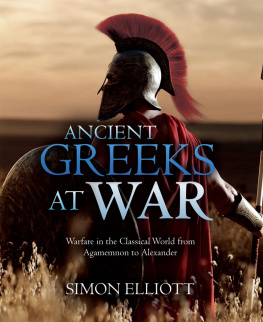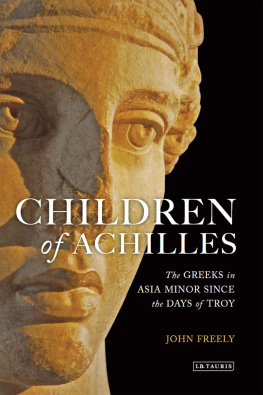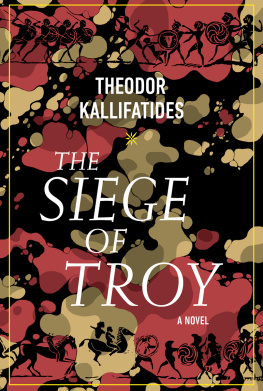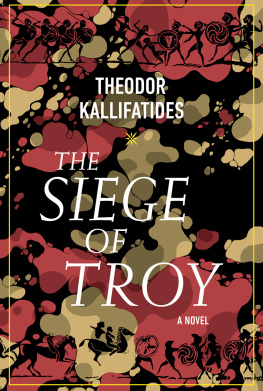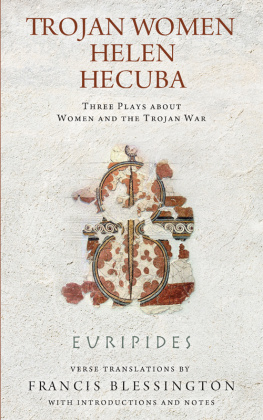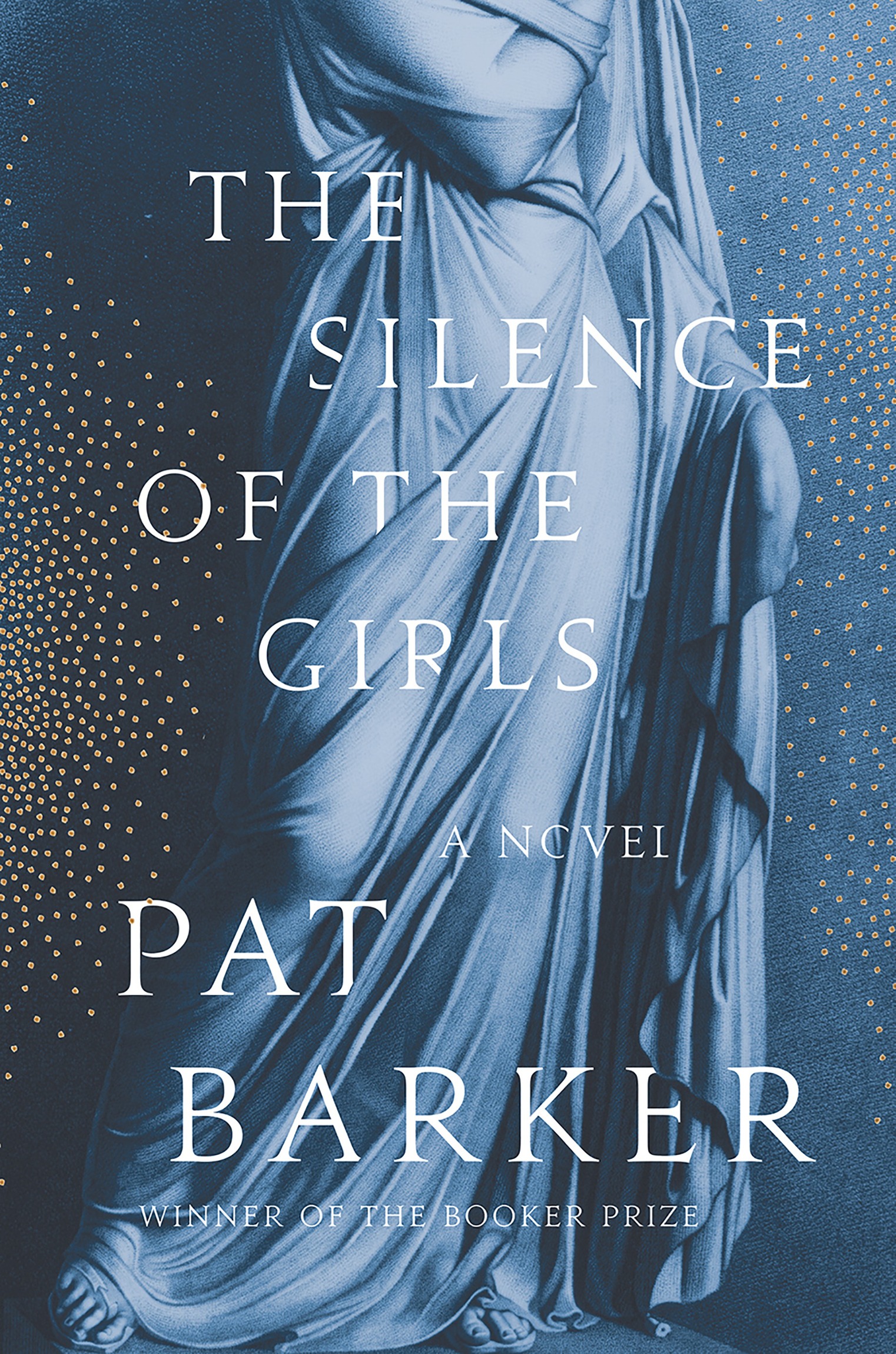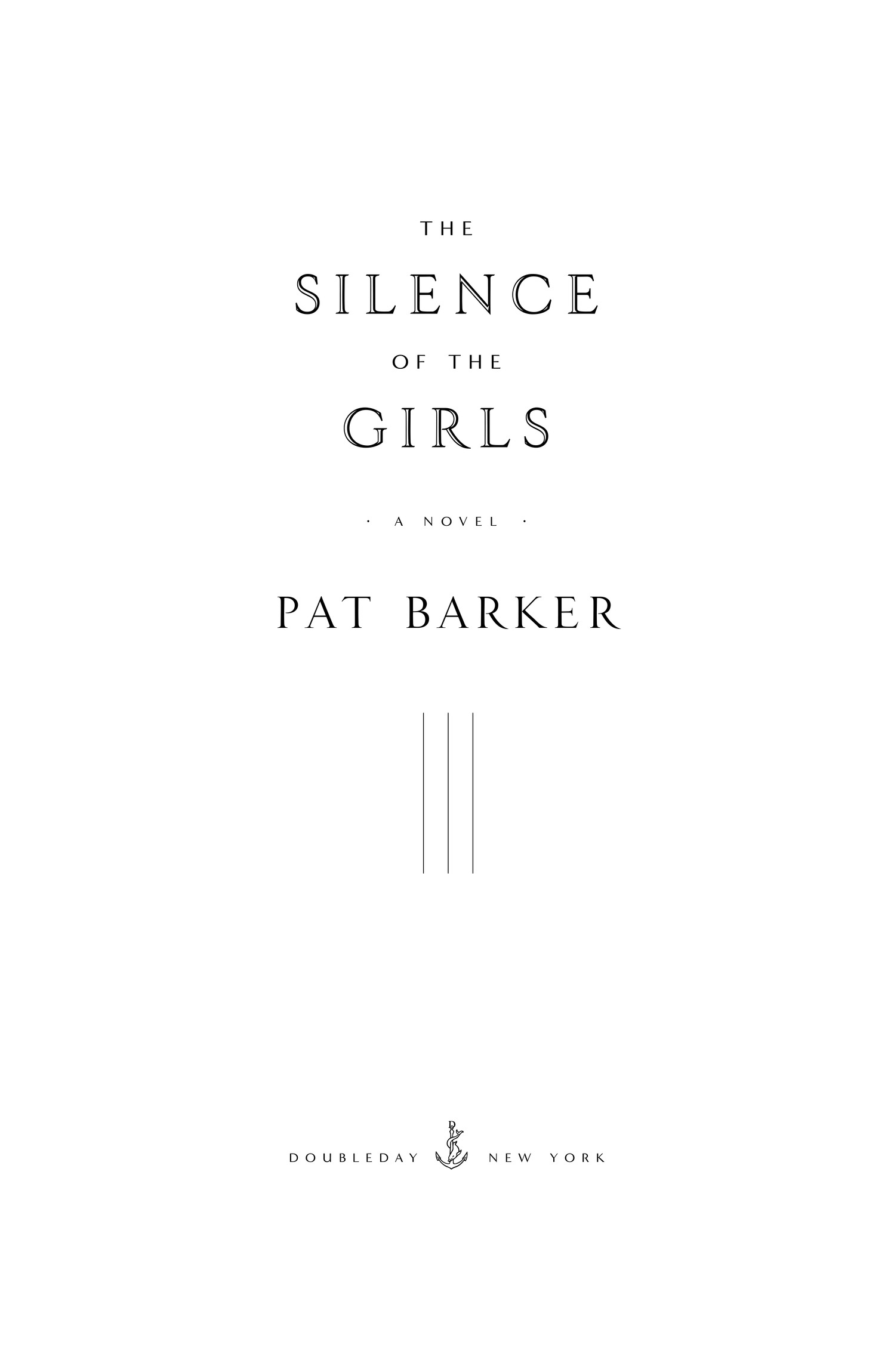ALSO BY PAT BARKER
Union Street
Blow Your House Down
Lizas England ( formerly The Centurys Daughter)
The Man Who Wasnt There
The Regeneration Trilogy
Regeneration
The Eye in the Door
The Ghost Road
Another World
Border Crossing
Double Vision
The Life Class Trilogy
Life Class
Tobys Room
Noonday
This is a work of fiction. Names, characters, places, and incidents either are the products of the authors imagination or are used fictitiously. Any resemblance to actual persons, living or dead, events, or locales is entirely coincidental.
Copyright 2018 by Pat Barker
All rights reserved. Published in the United States by Doubleday, a division of Penguin Random House LLC, New York. Originally published in hardcover in Great Britain by Hamish Hamilton, a division of Penguin Random House Ltd., London, in 2018.
doubleday.com
DOUBLEDAY and the portrayal of an anchor with a dolphin are registered trademarks of Penguin Random House LLC.
Excerpt from The Human Stain by Philip Roth. Copyright 2000, Philip Roth. Published by Jonathan Cape, reprinted by permission of The Random House Group Limited, The Wylie Agency (UK) Limited, and Houghton Mifflin Harcourt Publishing Company. All rights reserved.
Cover design by Emily Mahon
Cover illustration: Engraving by Louis Charles Ruotte, drawn by Franois Gdon Reverdin, nineteenth century, after an antique sculpture at the Vatican Museums. Bibliothque Nationale. akg-images
LIBRARY OF CONGRESS CATALOGING-IN-PUBLICATION DATA
Names: Barker, Pat, 1943 author.
Title: The silence of the girls : a novel / Pat Barker.
Description: First edition. | New York : Doubleday, 2018.
Identifiers: LCCN 2018014387 (print) | LCCN 2018015358 (ebook) | ISBN 9780385544214 (hardcover) | ISBN 9780385544221 (ebook)
Subjects: LCSH : Trojan WarFiction. | Troy (Extinct city)Fiction. | BISAC : FICTION / Literary. | FICTION / Historical. | FICTION / War & Military. | GSAFD : Historical fiction. | War stories.
Classification: LCC PR 6052. A 6488 (ebook) | LCC PR 6052. A 6488 S 55 2018 (print) | DDC 823/.914dc23
LC record available at https://lccn.loc.gov/2018014387
Ebook ISBN9780385544221
v5.3.2
ep
Contents
For my children, John and Anna; and, as always,
in loving memory of David
You know how European literature begins? hed ask, after taking the roll at the first class meeting. With a quarrel. All of European literature springs from a fight. And then he picked up his copy of The Iliad and read to the class the opening lines. Divine Muse, sing of the ruinous wrath of AchillesBegin where they first quarrelled, Agamemnon, the King of men, and great Achilles. And what are they quarrelling about, these two violent, mighty souls? Its as basic as a barroom brawl. They are quarrelling over a woman. A girl, really. A girl stolen from her father. A girl abducted in a war.
The Human Stain, Philip Roth
1
Great Achilles. Brilliant Achilles, shining Achilles, godlike AchillesHow the epithets pile up. We never called him any of those things; we called him the butcher.
Swift-footed Achilles. Now theres an interesting one. More than anything else, more than brilliance, more than greatness, his speed defined him. Theres a story that he once chased the god Apollo all over the plains of Troy. Cornered at last, Apollo is supposed to have said: You cant kill me, Im immortal. Ah, yes, Achilles replied. But we both know if you werent immortal, youd be dead.
Nobody was ever allowed the last word; not even a god.
I heard him before I saw him: his battle cry ringing round the walls of Lyrnessus.
We womenchildren too, of coursehad been told to go to the citadel, taking a change of clothes and as much food and drink as we could carry. Like all respectable married women, I rarely left my housethough admittedly in my case the house was a palaceso to be walking down the street in broad daylight felt like a holiday. Almost. Under the laughter and cheering and shouted jokes, I think we were all afraid. I know I was. We all knew the men were being pushed backthe fighting that had once been on the beach and around the harbour was now directly under the gates. We could hear shouts, cries, the clash of swords on shieldsand we knew what awaited us if the city fell. And yet the danger didnt feel realnot to me at any rate, and I doubt if the others were any closer to grasping it. How was it possible for these high walls that had protected us all our lives to fall?
Down all the narrow lanes of the city, small groups of women carrying babies or holding children by the hand were converging on the main square. Fierce sunlight, a scouring wind and the citadels black shadow reaching out to take us in. Blinded for a moment, I stumbled, moving from bright light into the dark. The common women and slaves were herded together into the basement while members of royal and aristocratic families occupied the top floor. All the way up the twisting staircase we went, barely able to get a foothold on the narrow steps, round and round and round until at last we came out, abruptly, into a big, bare room. Arrows of light from the slit windows lay at intervals across the floor, leaving the corners of the room in shadow. Slowly, we looked around, selecting places to sit and spread our belongings and start trying to create some semblance of a home.
At first, it felt cool but then, as the sun rose higher, it became hot and stuffy. Airless. Within a few hours, the smells of sweaty bodies, of milk, baby-shit and menstrual blood, had become almost unbearable. Babies and toddlers grew fretful in the heat. Mothers laid the youngest children on sheets and fanned them while their older brothers and sisters ran around, overexcited, not really understanding what was going on. A couple of boysten or eleven years old, too young to fightoccupied the top of the stairs and pretended to drive back the invaders. The women kept looking at each other, dry-mouthed, not talking much, as outside the shouts and cries grew louder and a great hammering on the gates began. Again, and again, that battle cry rang out, as inhuman as the howling of a wolf. For once, women with sons envied those with daughters, because girls would be allowed to live. Boys, if anywhere near fighting age, were routinely slaughtered. Even pregnant women were sometimes killed, speared through the belly on the off chance their child would be a boy. I noticed Ismene, who was four months pregnant with my husbands child, pressing her hands hard into her stomach, trying to convince herself the pregnancy didnt show.
In the past few days, Id often seen her looking at meIsmene, whod once been so careful never to meet my eyesand her expression had said, more clearly than any words: Its your turn now. Lets see how you like it. It hurt, that brash, unblinking stare. I came from a family where slaves were treated kindly and when my father gave me in marriage to Mynes, the king, I carried on the tradition in my own home. Id been kind to Ismeneor I thought I had, but perhaps no kindness was possible between owner and slave, only varying degrees of brutality? I looked across the room at Ismene and thought:


